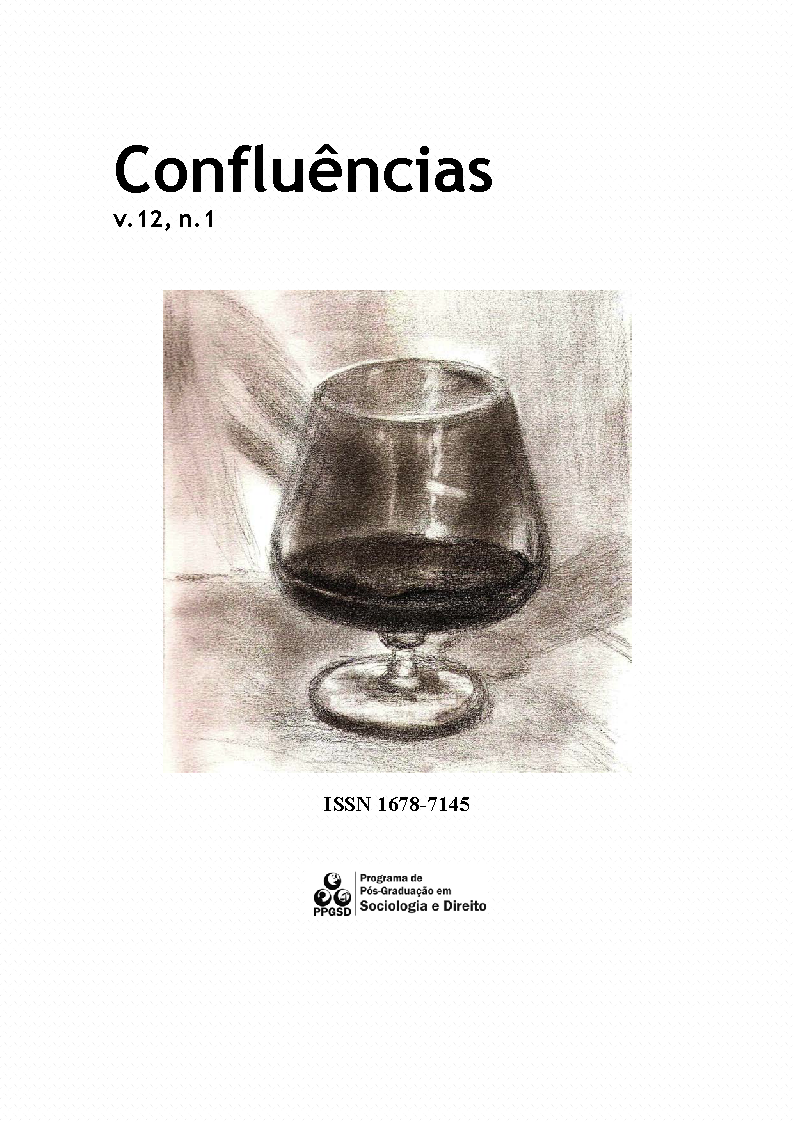DIFÍCIL HIERARQUIA: NOTAS SOBRE A AVALIAÇÃO DO SUPREMO TRIBUNAL FEDERAL PELOS MAGISTRADOS DA BASE DO PODER JUDICIÁRIO NO BRASIL
DOI:
https://doi.org/10.22409/conflu12i1.p256Palavras-chave:
Hierarquia judicial, Poder Judiciário, Supremo Tribunal Federal, comportamento judicial.Resumo
O artigo busca contribuir para a discussão a respeito da imagem – frequentemente negativa – do Supremo Federal Tribunal junto a parte significativa dos magistrados da base do Poder Judiciário do Brasil atual. O trabalho insere-se nodebate sobre a sociologia das instituições judiciais brasileiras e integra, portanto, o quadromais amplo das discussões que envolvem a sociologia do campo jurídico. Partindo de dados coletados em surveys e previamente apresentados em outros estudos, o artigo lhes conferiu nova sistematização e interpretação voltada a responder à indagação proposta. Como resultado, encontrou-se que as diferenças nas formas de recrutamento dos magistrados dos diferentes níveis hierárquicos conduzem a visões díspares com relação ao exercício da função judicial e a uma visão aparentemente estereotipadDownloads
Downloads
Publicado
Edição
Seção
Licença
Os autores mantêm os direitos autorais e concedem à revista o direito de primeira publicação, com o trabalho simultaneamente licenciado sob a Licença Creative Commons Attribution que permite o compartilhamento do trabalho com reconhecimento da autoria e publicação inicial nesta revista. Têm autorização para assumir contratos adicionais separadamente, para distribuição não-exclusiva da versão do trabalho publicada nesta revista (ex.: publicar em repositório institucional ou como capítulo de livro), com reconhecimento de autoria e publicação inicial nesta revista. Possuem permissão e são estimulados a publicar e distribuir seu trabalho online (ex.: em repositórios institucionais ou na sua página pessoal) a qualquer ponto antes ou durante o processo editorial, já que isso pode gerar alterações produtivas, bem como aumentar o impacto e a citação do trabalho publicado.







